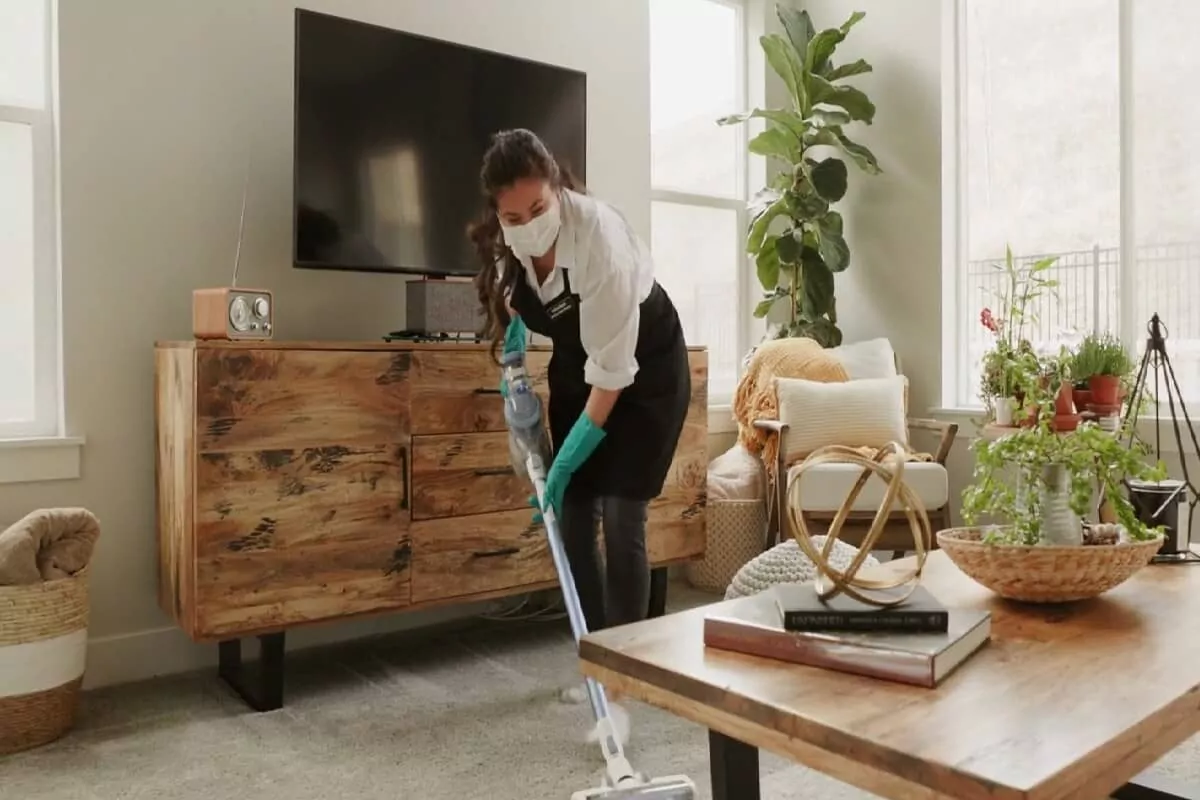Cleaning Houses Under the Table for Cash: Legal Trouble?
Navigating the Legal Landscape of Cash Payments in the Cleaning Industry
By Nelmie Jane Pardo | Updated May 18, 2023
Every house cleaner wants to get paid quickly and conveniently. If you intend to receive payments in cold hard cash, you may wonder, “Is it legal to clean houses for cash?”
You don’t want to breach any laws that put your cleaning business at risk and impact your financial situation down the road.
Keep reading to find out if cash payments are legal and what you need to remember as a cleaning service provider.
Table of Contents
Is cleaning houses under the table legal?
Under-the-table house cleaning means getting paid for your services in cash off the record whether unknowingly or intentionally evading taxes, making it an illegal practice.
Cleaning houses for cash is illegal if you’re:
- An individual who cleans houses in your free time, and you don’t report your cleaning income in full
- A cleaning business owner/employee who only declares non-cash earnings
Cash payment is legal if you’re a responsible taxpayer
Besides checks and credit cards, receiving cash is a 100% legal and common way to collect payments from customers in the house cleaning service industry.
In fact, it’s the easiest, most convenient, and cheapest payment method for professional cleaners who are part of a registered cleaning business.
- You can certainly receive cash payments for your cleaning services as long as you properly report your earnings to the Internal Revenue Service (IRS) and pay your taxes on time.
Disadvantages of under-the-table cash arrangements
While cash payments are quick and easy, you must remember to always run your cleaning business according to the law.
The last thing you want is to unknowingly get caught by the IRS and end up in legal trouble.
Keep in mind the following drawbacks of cleaning homes under the table to evade taxes:
Fines and penalties
Failure to pay your taxes properly will lead to serious repercussions.
- If the IRS discovers you’re receiving cash payments, you may get audited and fined. You could also get involved in other legal issues and even jail time.
After that, the IRS will likely monitor your entire cash flow moving forward, so you’ll be walking on tiptoes for the rest of your working years.
Also, remember that the people hiring cleaners are mostly high-income earners who diligently report their earnings and expenses. If you don’t declare your under-the-table cleaning income, your customers will.
And if the IRS compares your report with those of your clients, they will notice discrepancies and find out you’re illegally cleaning for money.
Added financial burdens when selling your business
When it’s time to sell your cleaning business, your financial records should be flawless.
- Otherwise, you may have to pay all your tax liabilities first before even thinking of putting your cleaning company up for sale.
You don’t want a troublesome dispute when an interested buyer discovers that you defaulted on your tax responsibilities due to shady under-the-table cash arrangements.
No proper insurance coverage
Some people clean houses as a side hustle and are not professional cleaners.
They don’t run a legitimate, registered cleaning business. Nor are they employed as cleaning employees or housekeepers.
In this case, under-the-table cash arrangements are all the more illegal because there’s no proper insurance coverage for work-related injuries and illnesses.
- If you get injured at work, you don’t have reliable coverage for medical bills and other expenses.
- You could get entangled in a messy lawsuit against your client, leading to expensive legal fees and immense stress.
How to clean houses for cash legally
As mentioned earlier, cash is the most convenient and easiest form of payment for cleaners. Do these steps to ensure you’re getting paid in cash without breaking any laws:
Get a license to clean houses
Find out if your state requires you to get a license to provide house cleaning services, whether you’re planning to start a small cleaning business and clean full-time or become a housekeeper to clean on the side.
A business license helps you:
- Look more trustworthy as a professional cleaner operating a legal business
- Claim tax deductions for cleaning supplies, equipment, and vehicle
- Charge higher to reflect the costs of running your cleaning company
- Expand your cleaning company and hire employees as your business grows
Know the laws
Be aware of federal and state laws requiring you to declare your cleaning income and pay your taxes.
- File federal taxes and report your earnings to the IRS.
- Pay your taxes on time and in full in your city and state.
You should figure out if you fulfill certain income thresholds and job characteristics requiring you to file taxes as a cleaner, whether you’re an independent contractor or an employee.
If you’re a cleaning business owner with one or more personnel, pay attention to the taxes you must pay as an employer. For example, you’re responsible for deducting a certain percentage from your employees’ wages to cover the Federal Insurance Contributions Act (FICA) tax and Federal Unemployment (FUTA) tax.
Issue a receipt
In addition to updating your income records, provide a receipt every time you receive cash payments so your customers can easily monitor their expenses.
Final thoughts
Remember, know your legal obligations as a cleaning service provider to stay on the IRS’ good side and avoid serious trouble.
Stay on top of your taxes at all times, and get help from a professional accountant if necessary.
If you’re aspiring to start your cleaning company, read our ultimate guide for starting a new cleaning business to be successful in the cleaning industry.
Written by Nelmie Jane Pardo

Nelmie Jane Pardo is a senior contributing writer who lends insight into digital marketing methods and business solutions. She regularly writes at BusinessHue to help business owners take their online marketing to the next level.